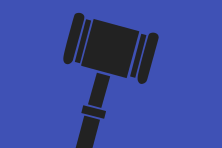Authoritarianism
“”A nation based on freedom is just another place to go shopping.
|
| — |
Authoritarianism is a system of government where centralized power trumps all else. This power requires absolute obedience from citizens and restricts their political and civil liberties. Political scientists have created various classifications to categorize authoritarian states, qualities commonly associated with authoritarian regimes include the absence of free and competitive ![]() democratic elections and one-party state, as well as censorship, and minimal power restrictions. Though sometimes authoritarianism can reside in
democratic elections and one-party state, as well as censorship, and minimal power restrictions. Though sometimes authoritarianism can reside in ![]() democratic countries with free and fair elections where there's a clampdown on liberties instead as well as more emphasis on authority.
democratic countries with free and fair elections where there's a clampdown on liberties instead as well as more emphasis on authority.
Authoritarianism is characterized by a highly concentrated and ![]() centralized government power maintained by political repression and the exclusion of potential or supposed challengers by armed force. He uses political parties and mass organizations to mobilize people around the goals of the regime.
centralized government power maintained by political repression and the exclusion of potential or supposed challengers by armed force. He uses political parties and mass organizations to mobilize people around the goals of the regime.
Auth is very demanding and angry, don’t mention this to him or he’ll become very angry. He also hates it when people call him ![]() totalitarian. He arrests and sometimes executes people if he finds out that some of his citizens are not affected by his propaganda, usually.
totalitarian. He arrests and sometimes executes people if he finds out that some of his citizens are not affected by his propaganda, usually.
History
The shift from ![]() tribal societies to complex cities often led to the rise of authoritarian rule. Powerful figures, like
tribal societies to complex cities often led to the rise of authoritarian rule. Powerful figures, like ![]() monarchs, emerged from dynasties, consolidating control. In Greece,
monarchs, emerged from dynasties, consolidating control. In Greece, ![]() democracy, initially seen as a challenger to authoritarian rule, eventually succumbed to authoritarian tendencies. This cycle continued for centuries. But the
democracy, initially seen as a challenger to authoritarian rule, eventually succumbed to authoritarian tendencies. This cycle continued for centuries. But the ![]() Enlightenment brought a revolutionary shift. Philosophers questioned traditional authority, sparking
Enlightenment brought a revolutionary shift. Philosophers questioned traditional authority, sparking ![]() rebellions
rebellions ![]() . Though, however, even these newly formed, thought to be good governments often slipped back into
. Though, however, even these newly formed, thought to be good governments often slipped back into ![]() authoritarianism
authoritarianism ![]() , continuing the cycle and highlighting the difficulty of maintaining a free and just society.
, continuing the cycle and highlighting the difficulty of maintaining a free and just society.
During both World War II and Cold War, the ![]() Western Alliance began to embrace
Western Alliance began to embrace ![]() democracy more than
democracy more than ![]() authoritarian, so the use of him began to drop.
authoritarian, so the use of him began to drop.
Beliefs
Authoritarian State
While authoritarian rule has existed for millennia (e.g., ![]() Roman Empire), the idea of an "authoritarian state" became more concrete with figures like
Roman Empire), the idea of an "authoritarian state" became more concrete with figures like ![]() Louis XIV and
Louis XIV and ![]() Thomas Hobbes.
Thomas Hobbes. ![]() Louis XIV embodied
Louis XIV embodied ![]() absolute monarchy and rejected
absolute monarchy and rejected ![]() Feudalism, ruling with complete authority and justifying it through religion. These regimes tend to persecute opponents and manipulate elections to stay in power.
Feudalism, ruling with complete authority and justifying it through religion. These regimes tend to persecute opponents and manipulate elections to stay in power.
Censorship
One of, if not the main characteristic of authoritarianism is censorship against the opinion and manifestation of opponents or divergent cultural values. There are several types of censorships, including opposition censorship, ![]() cultural value censorship, ethnocentric censorship, economic induced censorship,
cultural value censorship, ethnocentric censorship, economic induced censorship, ![]() isolationist censorship and censorship against
isolationist censorship and censorship against ![]() science.
science.
Currently, the foreign social medias has been banned for having information about their country's problems, such as ![]() North Korea and
North Korea and ![]() China.
China. ![]() China begin to make his own social media which is based on the foreign social media (for example,
China begin to make his own social media which is based on the foreign social media (for example, ![]() BiliBili is based on
BiliBili is based on ![]() YouTube), but certain information that include things that "oppose" or "threaten" the state are censored (famous example being Tank Man in Tiananmen Square Massacre image being censored in Chinese medias).[1]
YouTube), but certain information that include things that "oppose" or "threaten" the state are censored (famous example being Tank Man in Tiananmen Square Massacre image being censored in Chinese medias).[1]
Detention and Violence
One of the hallmarks of authoritarianism is the arrest (or imprisonment) and torture of political opponents, especially if they are extremely popular, but also arrest small opponents such as demonstrators. They usually use this as an example so that it cannot be repeated, even if it is sometimes expensive, so they end up using other strategies.
Some states, especially the older ones, used public execution to set an example of what would happen if they opposed the government, abusing the fear of people. Others perform without the public's view, hoping to avoid revolts, the most famous example being the cases of ![]() dictatorships.
dictatorships.
Others create forced labor camps in subhuman conditions and cruel torture in scientific experiments on opponents of the government, the most famous examples being ![]() Nazi Germany and the
Nazi Germany and the ![]() Soviet Union (intensified under the
Soviet Union (intensified under the ![]() Stalin regime). Currently, this is seen extremely negatively, so authoritarian governments end up substituting the name for re-education camps or something similar. Notable examples of this includes the
Stalin regime). Currently, this is seen extremely negatively, so authoritarian governments end up substituting the name for re-education camps or something similar. Notable examples of this includes the ![]() People's Republic of China and
People's Republic of China and ![]() North Korea.
North Korea.
Propaganda
Authoritarian governments wield propaganda as a weapon in order to manipulate the public opinion. This advertising blitz relentlessly promotes a state-sanctioned ideal, be it ideology, ![]() religion, or culture. Traditional methods like posters, books and school indoctrination are employed alongside cultural manipulation through songs and essays. Opponents are very, very often demonized, often with loaded extreme labels like “
religion, or culture. Traditional methods like posters, books and school indoctrination are employed alongside cultural manipulation through songs and essays. Opponents are very, very often demonized, often with loaded extreme labels like “![]() communist” or “
communist” or “![]() Nazi”. Censorship stifles any dissenting views, while
Nazi”. Censorship stifles any dissenting views, while ![]() satire is used to mock and discredit opposition, often silencing satirists in the process.
satire is used to mock and discredit opposition, often silencing satirists in the process.
This propaganda machine frequently manufactures a cult of personality around the leader or the state itself, portraying them as infallible or godlike figures. This fosters blind obedience and facilitates control, but sows the seeds of future instability.
Propaganda also serves as a smokescreen, concealing the nation's problems and failures. It paints a rosy picture, assuring citizens that the government is competent and the country thriving. This manipulation extends to wartime, where propaganda can obscure defeats.
Stay in Power
As previously discussed, the strategies mentioned above are often employed to keep a dictatorship in power, though these methods can fail in numerous ways. Many dictatorships have historically relied on ideals and ![]() religions to justify their rule. Initially,
religions to justify their rule. Initially, ![]() pagan and
pagan and ![]() Asian religions were used, but later,
Asian religions were used, but later, ![]() Christianity became the most commonly exploited religion in the West, while
Christianity became the most commonly exploited religion in the West, while ![]() Islam,
Islam, ![]() Paganism, and various
Paganism, and various ![]() Asian religions were utilized in other regions.
Asian religions were utilized in other regions.
Following the ![]() Industrial Revolution and World War I, religion was less frequently used to justify dictatorships, with some exceptions. Instead, ideologies like
Industrial Revolution and World War I, religion was less frequently used to justify dictatorships, with some exceptions. Instead, ideologies like ![]() revolutionary,
revolutionary, ![]() republican,
republican, ![]() anti-communist, and others became the primary tools for legitimizing authoritarian regimes.
anti-communist, and others became the primary tools for legitimizing authoritarian regimes.
In modern times, dictatorships often use a mix of ideologies, religion, and rhetoric to justify their existence and maintain control. Phrases like "in defense of freedom" or "in defense of anti-American liberation" are sometimes employed, despite their contradictions. After the ![]() Iraq War,
Iraq War, ![]() Islam was invoked to justify the rule of certain dictatorships (such as
Islam was invoked to justify the rule of certain dictatorships (such as ![]() Iran) and by
Iran) and by ![]() terrorist organizations (such as the
terrorist organizations (such as the ![]() Islamic State). Additionally, extreme
Islamic State). Additionally, extreme ![]() nationalism have also been exploited, as seen in countries like
nationalism have also been exploited, as seen in countries like ![]() China and
China and ![]() Russia.
Russia.
Relations
Law and Order
 Absolute Monarchism - Unjust and just authority are both great.
Absolute Monarchism - Unjust and just authority are both great. Oligarchy - From the shadows, my friend.
Oligarchy - From the shadows, my friend. Autocracy - You're too narcissistic but I like the way you work.
Autocracy - You're too narcissistic but I like the way you work. Marxism-Leninism - The way you work has no room for freedom.
Marxism-Leninism - The way you work has no room for freedom. Pinochetism - Throwing dissidents out of helicopters? Creative! WRITE THAT DOWN!
Pinochetism - Throwing dissidents out of helicopters? Creative! WRITE THAT DOWN! Stratocracy - What better way to achieve and maintain authority?
Stratocracy - What better way to achieve and maintain authority? Theocracy - Rule by a strong
Theocracy - Rule by a strong  religious class is great! The Bible and Quran are good because they have so many amazing rules.
religious class is great! The Bible and Quran are good because they have so many amazing rules. State Atheism - Urrr, forget what I said, mandatory
State Atheism - Urrr, forget what I said, mandatory  Atheism is super great!
Atheism is super great! Ba'athism - Getting the authoritarian part right, but in overt denial about it.
Ba'athism - Getting the authoritarian part right, but in overt denial about it. Social Authoritarianism - The correct way to do
Social Authoritarianism - The correct way to do  welfare.
welfare. Authoritarian Capitalism -
Authoritarian Capitalism -  Capitalism but better.
Capitalism but better. Authoritarian Socialism -
Authoritarian Socialism -  Socialism but better.
Socialism but better. Authoritarian Conservatism -
Authoritarian Conservatism -  Conservatism but better.
Conservatism but better. Authoritarian Progressivism -
Authoritarian Progressivism -  Progressivism but better.
Progressivism but better. Dengism - Mass surveillance? Hell yeah! The social credit system would’ve been very good. It is a shame you didn’t implement it.
Dengism - Mass surveillance? Hell yeah! The social credit system would’ve been very good. It is a shame you didn’t implement it. Police Statism - Respecting the authority.
Police Statism - Respecting the authority. Kritarchy - Maintaining law and order.
Kritarchy - Maintaining law and order. Totalitarianism - Son, that is a bit too far.
Totalitarianism - Son, that is a bit too far.
Suspicious
 Ingsoc - Grandson, that is way too far.
Ingsoc - Grandson, that is way too far. Enlightenment Thought - Could have ended me, but ended up falling victim to the cycle.
Enlightenment Thought - Could have ended me, but ended up falling victim to the cycle. Tribalism - The future is now, old man.
Tribalism - The future is now, old man. Democracy - Moron. We don't need ya dirty "liberty" and all that jazz... but you do elect authoritarian leaders sometimes which is nice.
Democracy - Moron. We don't need ya dirty "liberty" and all that jazz... but you do elect authoritarian leaders sometimes which is nice. Satirism - I like it better when you are used by me rather than when you are used by my opponents.
Satirism - I like it better when you are used by me rather than when you are used by my opponents. Neoconservatism - Claims to hate me but ironically installs
Neoconservatism - Claims to hate me but ironically installs  dictatorships.
dictatorships.
Freedumbs
 Kakistrocracy - This is where liberty leads, people.
Kakistrocracy - This is where liberty leads, people.  Oh wait-
Oh wait- Anti-Authoritarianism - My opposite. You guys are all rioters who terrorize and vandalize property, I hope you like me sending
Anti-Authoritarianism - My opposite. You guys are all rioters who terrorize and vandalize property, I hope you like me sending  my guards after you, hehe.
my guards after you, hehe. Anarchism - No authority? None, like at all? Do you have enough IQ digits to see why this is bad?
Anarchism - No authority? None, like at all? Do you have enough IQ digits to see why this is bad? Insurrectionary Anarchism - [Comment cleaned up, sentenced to death immediately.]
Insurrectionary Anarchism - [Comment cleaned up, sentenced to death immediately.] To be honest, I'm kind of scared of him.
How to Draw

Authoritarianism has a drawing rating of intermediate.
- Draw a ball.
- Fill it with a slightly faded navy blue.
- Draw a large black gavel in the middle of the ball in a slanted position.
- Draw eyes and you are done!
- Draw the hammer as his tool (optional)
| Color Name | HEX | |
|---|---|---|
| Faded Navy Blue | #3F51B5 | |
| Black | #141414 | |
Gallery
-
Authoritarianism calling Communism
-
"Don't act like you didn't do something against our law" - made by LB HD Mapper/LB HD Productions
-
By Andrew
Notes
- ↑ Internet Censorship



